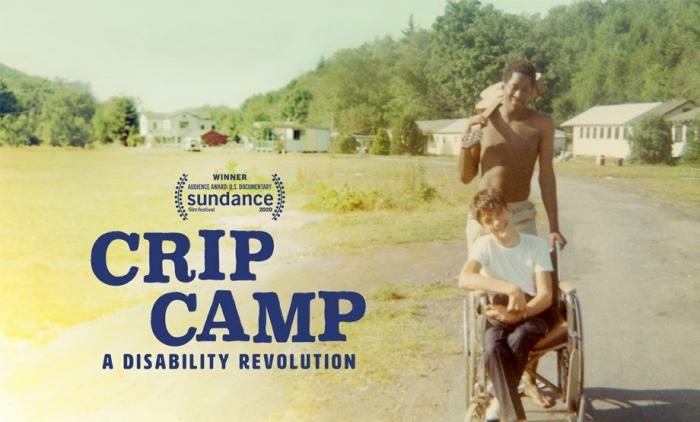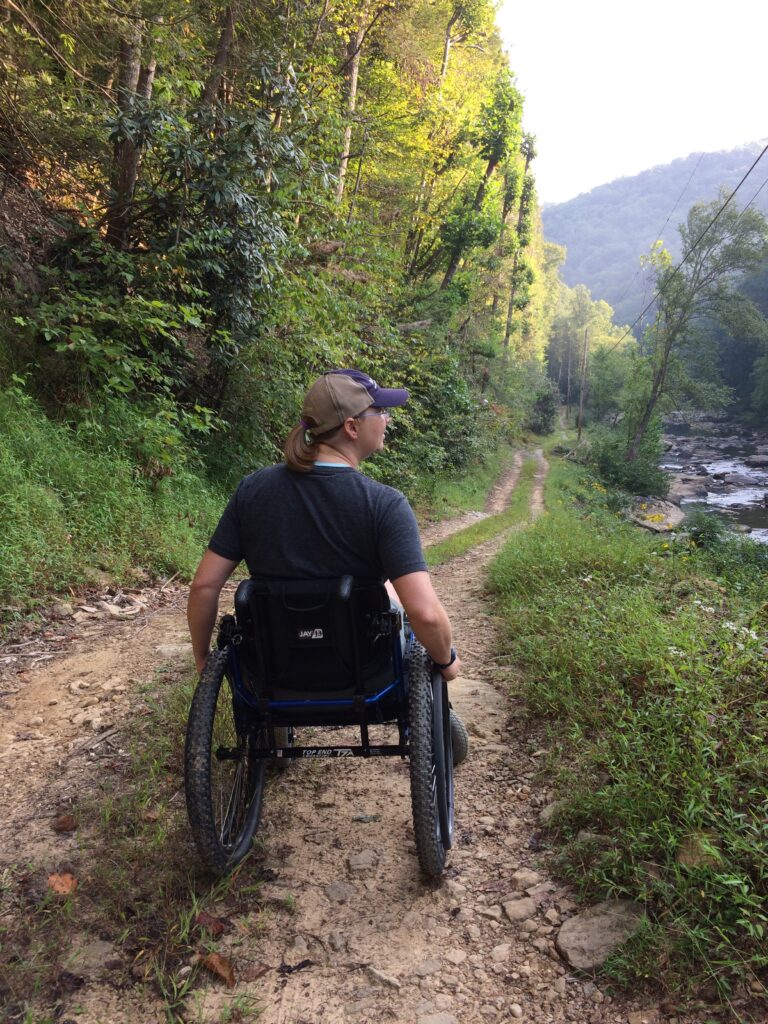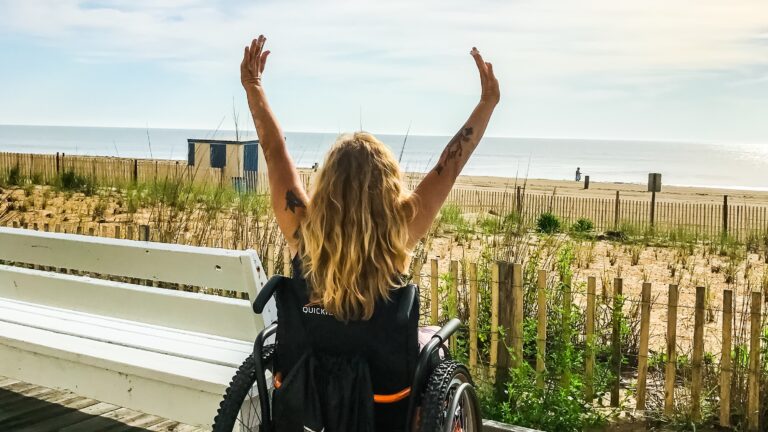Crip Camp: A Disability Revolution
Crip Camp: a review by Hannah Thompson, ADN Program Director
My identity as a white American woman consists of many labels. I am Christian, an academic, an ADN employee, and many other things as well as disabled. Disability is a significant part of my identity. I always knew this; however, I didn’t know that piece of my history until I watched Crip Camp.
Crip Camp is a documentary about the unsung heroes of the disability rights movement. Their story is one of bravery, courage, and heroism. People with disabilities have an ugly past which includes horrifying conditions in institutions, nondisabled people wanting us hidden, and countless discriminatory practices working against integrating us into society. This documentary highlights the ugly past but also highlights the bright future we have.
The pivotal part of the documentary is when they have a sit-in at the regional office of the Dept of Health Education and Welfare in San Francisco. They are fighting for federal regulations that would enforce Section 504 of the Rehabilitation Act which requires access for people with disabilities. These heroes with multiple disabilities and medical conditions do not leave for 28 days. Trust me, it is powerful. The leader of the movement, Judy Heumann is fearless and simply wants “disabled people to be seen as people.”
After watching this documentary, I have new heroes and role models. This changed the way I viewed my history. I come from people who fought, and I will keep fighting for the rights of people who have disabilities.
Crip Camp Inspires: a review by Peter Graber, ADN Board President
It is very unusual for me to see an Academy Awards nominated film, especially before it is nominated, but because I am at least a peripheral member of the disability rights community, Crip Camp was recommended to me, and I watched it on Netflix last July. It was an entertaining and meaningful window into the heart of a very unique community as it was forming in the 1970’s. A lot of movements that began in the 1960’s and 70’s fizzled. This one didn’t.
Don’t be put off by the category of documentary. This film has action, suspense, romance, and conflict, well-told by those who were there. You may be put off by the colorful language and references to sex, but most of us have gotten used to this in modern R-rated movies, and none of it is gratuitous here.
Crip Camp: A Disability Revolution is directed, written and co-produced by Nicole Newnham and James LeBrecht. Barack and Michelle Obama serve as executive producers under their newly formed Higher Ground Productions company. The film premiered at the Sundance Film Festival in January 2020, where it won the Audience Award. It was released by Netflix on March 25, 2020 to high praise from professional critics and high ratings by viewers. It has recently been nominated for Best Documentary Feature Oscar by the Academy of Motion Picture Arts and Sciences.
The movie begins with what you might call “home movies” filmed in 1971 at Camp Jened, a summer camp in New York for teens with disabilities. These clips are cut together with contemporary interviews with people you have seen in the clips, primarily Larry Allison, Judith Heumann, James LeBrecht, Denise Sherer Jacobson, and Stephen Hofmann. After this introduction, the film moves on to tell their stories as adults seeking dignity and opportunity as people with disabilities. These former “campers” became core leaders and founders of the disability rights movement in the United States.
We are taken in brief stages to the late 1980’s when people with disabilities begin taking action publicly, with creative forms of protest including sit-ins, to advocate for disability rights. I learned that as in almost every case, power is not shared willingly by those who have it but surrendered grudgingly to those who demand it, forcefully and skillfully. If you have ever wondered about the origins of the Americans with Disabilities Act, this film makes it clear from whence it came. Along the way, we are treated to some absolute mind-blowing pieces of history, including support from the Black Panther Party and a congressional hearing in the middle of a sit-in. And the music is pretty good too.
Those who made this film would probably bludgeon me if they heard me call the film “inspiring,” but that is what it is. Yet it does not let us write off successful people with disabilities as “inspiring,” as we frequently do. This is a gritty film, and it makes you think, makes you laugh, makes you sad, angry and hopeful, each in turn. Watch it! And then rather than just feeling inspired, be inspired to do something. Maybe write a check to ADN. Or closer to home, you know that corner store with no accessible entrance, that church with no accessible restroom. If you see something, say something. That’s the kind of inspiration I think that the filmmakers were going for.








